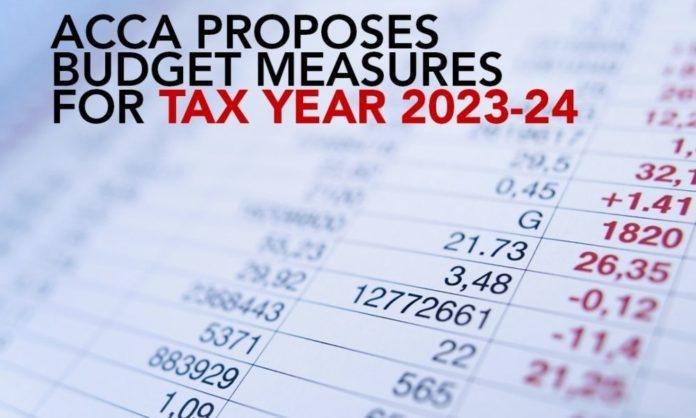The Association of Chartered Certified Accountants (ACCA) has announced its budget suggestions for the fiscal year 2023–2024 in Lahore. The ideas emphasize the need for significant changes in Pakistan’s economic policy to address urgent concerns. The recommendations are intended to address problems like population expansion, climate change, agricultural disincentives, and worries about food security.
The ACCA underlines the need for the government, political parties, and business associations to sign a “charter of the economy” for the next 10-15 years in order to maintain consistency in policies and their implementation. This long-term dedication will promote stability and sustainably increase the economy.
The budget plans offer a multifaceted strategy for enhancing the balance of payments, lowering imports, raising exports, and boosting domestic spending. Consistent economic policies, utilizing local talent and resources, and adopting a new economic model are all stressed by ACCA.
To achieve these goals, the ACCA advises finding import alternatives and reducing non-essential imports in a sustained manner. Reduced reliance on imported oil and gas can be achieved by promoting eco-friendly energy sources, implementing daylight savings time, and shortening business hours and working days.
The ACCA underlines the need to concentrate on services that make use of Pakistan’s plentiful raw materials and skilled young in order to increase exports. To ensure equitable tax policy, it is suggested that higher-income individuals shoulder more of the tax burden while middle- and lower-income groups receive subsidies for living expenses.
To increase the taxation base, ACCA demands making considerable improvements in the recordkeeping of the economy. The international organization suggests identifying people who are living beyond their reported means and firms that are making false tax filings by leveraging technology like artificial intelligence and data analytics to bring them into the tax net.
Reduced tax rates and streamlined compliance procedures are just two examples of structural reforms that can diminish the allure of tax evasion and boost the effectiveness of the taxation system. The ACCA suggests low tax rates for major agricultural landowners, with the money raised going towards supporting small farmers’ basic farming requirements.
To support economic recovery, the ACCA advises promoting regional manufacturing, mining, and industry while scrutinizing pricy energy sector deals. Investing in renewable energy initiatives, promoting the consumption of locally produced goods, and supporting entrepreneurship through the banking sector are all cited as crucial strategies. According to ACCA, supportive laws, tax advantages, and investments in high-skill training are necessary if Pakistan’s IT/ITeS industry is to reach its full potential. The ACCA also advises expanding the tax base by including professionals in the legal and tax systems, such as doctors, accountants, engineers, lawyers, and architects.
In addition, ACCA suggests that a venture capital fund be established to aid Pakistani start-ups, that solar panel subsidies be provided, and that the livestock industry be given priority in the future budget.
The Global Tenets of Taxing from the ACCA provide as a framework for building public confidence and an efficient taxing system. The accounting body stresses the value of openness, transparency, clarity, and simplicity in tax laws and procedures. By following these budget ideas, Pakistan can, in the opinion of ACCA, lay the road for long-term economic growth, address issues with unemployment, and establish itself as a regional powerhouse.
Stay tuned to Brandsynario for more news and updates.









































